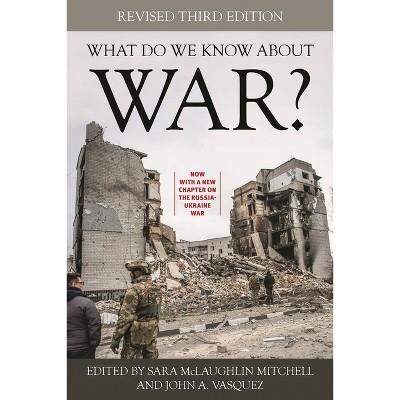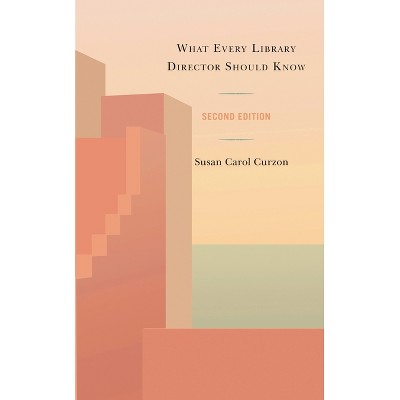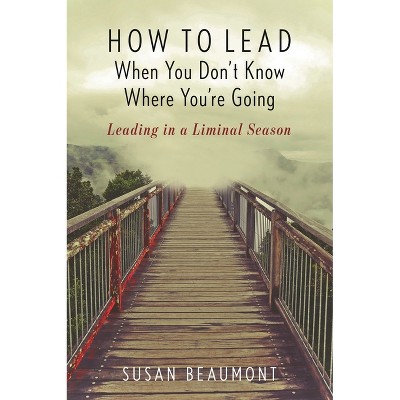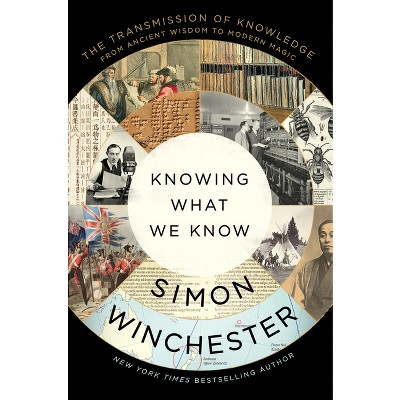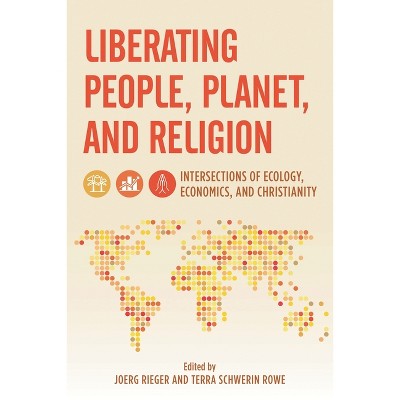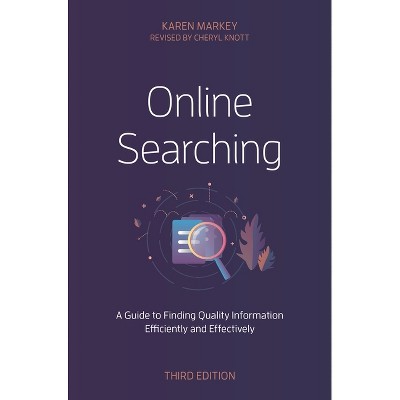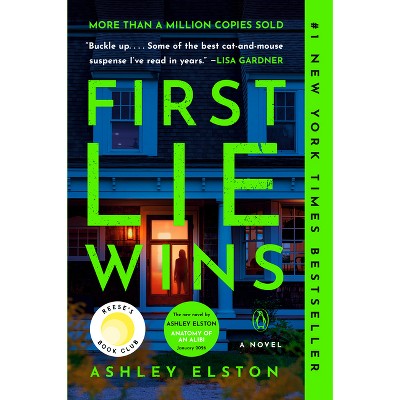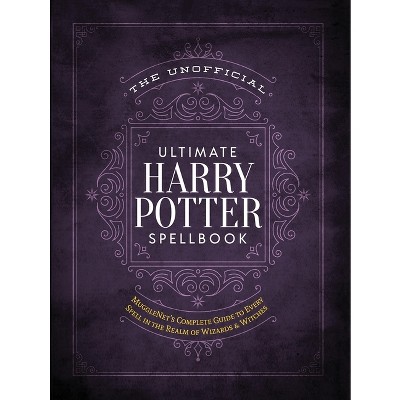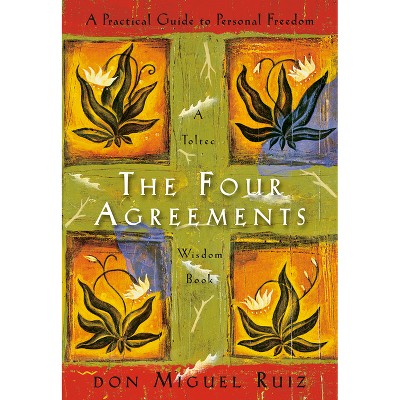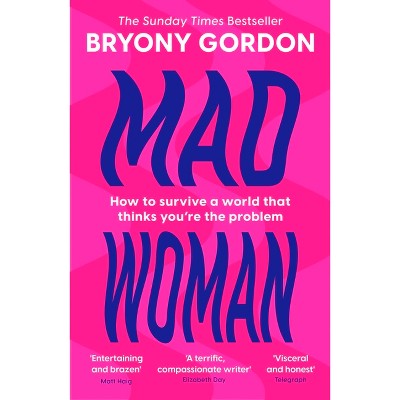
Knowing What Psychoanalysts Do and Doing What Psychoanalysts Know - by David Tuckett & Elizabeth Allison & Olivier Bonard (Paperback)
In Stock
About this item
Highlights
- Using the in-depth discussion of everyday clinical cases using a new collegiate method, the authors set out to reveal and then to understand, without judgment, the diversity in contemporary psychoanalytic approaches.
- About the Author: David Tuckett is a Distinguished Fellow and Training and Supervising Analyst at the British Psychoanalytic Society and Emeritus Professor of Decision-Making at University College London (UCL).
- 296 Pages
- Psychology, Movements
Description
About the Book
Using the in-depth discussion of everyday clinical cases using a new collegiate method, the authors set out to reveal and then to understand, without judgment, the diversity in contemporary psychoanalytic approaches. They evolve a new theoretical framework and a set of 11 prac...Book Synopsis
Using the in-depth discussion of everyday clinical cases using a new collegiate method, the authors set out to reveal and then to understand, without judgment, the diversity in contemporary psychoanalytic approaches. They evolve a new theoretical framework and a set of 11 practical questions for experienced psychoanalysts and students to use.
Review Quotes
A ground-breaking exploration of psychoanalytic practice. Through their meticulous research, analysis of workshop discussions, and psychoanalytical writings, the authors offer a shared theoretical framework for self-enquiry. I participated in the work that led to this book and the one that preceded it, always gaining a better understanding of the models with which my colleagues worked and the model I used myself. This book challenges and guides psychoanalysts to reflect on their practice, fostering a deeper understanding of the analytic situation, recognition of the unconscious, and transformative interventions. A must-read for professionals seeking to enhance their therapeutic approach and contribute to the evolution of psychoanalysis.
An admirable, heroic, rigorous, sustained, effort that gives us access to information well beyond surmise, the only other approach to find out what analysts do, and even more valuably what they think and what they unknowingly believe they are doing and why. The book is very stimulating and I hope our fellow practitioners appreciate it.
An impressive achievement, creating a new common theoretical framework. A remarkable and essential reference. Key for psychoanalytic training.
Extraordinarily astute, this book represents a milestone. The authors create a framework both for unity in diversity in the international cooperation of psychoanalysts and for self-reflection based on conceptual empiricism for the everyday work of each individual clinician. The knowledgeable re-translation of some of Freud's central terms correct some previously common misconceptions. A gift to all international psychoanalysts, including psychoanalysts-in-training.
I thank David Tuckett for the deep experience reading his book has evoked in me. It is a profound, comprehensive analysis of the present crisis in the theory and practice of psychoanalytic technique. The penetrating, objective, and fair description of the dominant alternative models of psychoanalytic interventions upgrades the very level of the respective controversial discussions.
If you've ever wondered, 'Is this analysis?', this book is a great place to start. As a recently graduated analyst, I found this book extremely helpful and orienting in understanding my own developing approach to psychoanalysis. A valuable guide in the 'long march' to situate oneself within the expanding and contradictory approaches to psychoanalysis, it also provides a useful psychoanalytic education along the way. It should be a welcome addition to psychoanalytic training curricula.
In terms of the history of science, the Comparative Clinical Method project has the great merit of having led psychoanalysis from the time of ideological struggles between different psychoanalytic schools into the time of plurality in psychoanalysis. A treasure of clinical case material as well as sophisticated conceptual thinking.
In the parable of the blind men and the elephant, each describes a different creature by focusing on a different part of the animal. Psychoanalysis too finds it hard to provide a gestalt for what it is we do and what we believe to be central to our endeavors. Here Tuckett, with his esteemed colleagues, presents us with the elephant.
In this ground-breaking book, David Tuckett et al. show how their sophisticated, nuanced research model applied to the clinical material from the long-standing Comparative Clinical Methods Working Party allows them to present a sophisticated comparison of different psychoanalytic methods. It is beautifully written with numerous clinical examples that are discussed in an unbiased way. Every psychoanalyst can benefit from reading this book.
Psychoanalytic literature has accrued a vast bibliography on theory, but there is relatively little when it comes to exploring what ordinary psychoanalytic sessions look like and how theoretical assumptions bleed into practice. This book splendidly fills this gap by taking the reader into the denseness and complexities of analytic practice through a rigorous method of study and comparison. It should not be missed!
The largest collection of psychoanalytic clinical material ever assembled, this book presents a glorious vista of the richness of contemporary clinical thinking by analysts and (perhaps for the first time since Freud) identifies the precious common core of psychoanalytic clinical thought. This breath-taking brilliant insight filled undertaking will be a landmark in the history of psychoanalysis and vital reading for anyone practicing psychoanalytically informed psychological therapy. A giant contribution to clinical understanding and practice.
This book is based on the evidence of hundreds of hours of clinical presentations by experienced North American and European analysts of varying orientations. Unique and truly pathbreaking... an elegantly articulated and very creatively conceptualized framework. The approach and tone adopted throughout is neutral, respectful, and non-judgmental. There is nothing remotely like this work in our literature. A powerful and indispensable contribution.
This pioneering work from the Comparative Clinical Methods project accomplishes Freud's wished-for Junktim of practice and theory--elaborating the traditional case study into a research method with group validation of findings. Using case reports of well-known analysts, the CCM team develops and demonstrates a new theoretical frame that all clinicians will find illuminating.
We are invited to follow the creative work of an international group of psychoanalysts researching the different basic modes of doing analysis, leading up to the identification of those significant moments when the unconscious maximally reveals itself in the disturbing phenomena which occur unexpectedly. A unique and fascinating book.
About the Author
David Tuckett is a Distinguished Fellow and Training and Supervising Analyst at the British Psychoanalytic Society and Emeritus Professor of Decision-Making at University College London (UCL). He is a practicing psychoanalyst as well as Fellow of the Royal Society of Arts and was the founding editor of the New Library of Psychoanalysis. He has served as Editor in Chief of the International Journal of Psychoanalysis, President of the European Psychoanalytic Federation, Board member of the International Psychoanalytic Association and Chair of the Comparative Clinical Methods working party. He has contributed books and journal articles in the fields of medical sociology, economics and cognitive science and developed and published articles in leading journals on Conviction Narrative Theory - a theory of choice under uncertainty, which combines psychoanalytic, neuroscientific, sociological, and economic insights to understand decision making under uncertainty and its wider effects on society, such as in the creation of financial crises. He gave a TED lecture at the University of Warwick and spoke at significant policy-making events such as the Davos Forum as well as publishing on monetary and financial stability policy in the staff working papers series of the Bank of England. He has twice received the Sigourney Award for contributions to psychoanalysis.
Elizabeth Allison, DPhil is the Director of the Psychoanalysis Unit at University College London. She is a psychoanalyst and a Member of the British Psychoanalytical Society. She is the Programme Director of UCL's MSc Theoretical Psychoanalytic Studies and also supervises students on the Psychoanalysis Unit's Doctoral Programme. She is an Editorial Board member and Editor of the Psychoanalytic Controversies section in the International Journal of Psychoanalysis.
Olivier Bonard, MD, a child and adult psychiatrist, is a teaching and supervising member of the Swiss Psychoanalytical Society. He coordinated CCM activities for six years. He teaches post-graduate courses at the Universities of Lausanne and Geneva. He practises individual psychoanalytic psychodrama with several co-therapists and teaches this technique in Neuchâtel, Barcelona and Athens. Together with some of his colleagues, he founded the group psychoanalytic psychotherapy training course in Lausanne and Geneva. He is the founder of Tribune psychanalytique, an annual Swiss-French psychoanalytic journal.
Georg J. Bruns, MD, is a specialist in neurology and psychiatry, PhD (Sociology), Prof. emeritus for medical sociology at the University of Bremen; full member of the German Psychoanalytic Association (DPV), of the EPF and IPA, training analyst, president of the DPV 2002 - 2004, chair of the programme committee of IPAC 2007 in Berlin. Member of the CCM Moderators group. Associate Editor of the International Journal of Psychoanalysis. Publications on psychoanalytic, psychiatric and medical-sociological topics. Author and editor of several books. Scientific fields: psychoanalytic psychotherapy of psychoses, sociology of psychiatry, application of psychoanalysis in cultural and social fields.
Anna L. Christopoulos, Ph.D. is a Professor Emeritus of Clinical Psychology of the National and Kapodistrian University of Athens, Greece. She is a full member of the Hellenic Psychoanalytic Association, the European Psychoanalytic Federation and the International Psychoanalytic Association. She is a core member of the European Psychoanalytic Comparative Clinical Methods (CCM) moderators' group. She is also an associate board member of the International Journal of Psychoanalysis. She is the author of two books Introduction to adult psychopathology and Research in psychoanalysis both published by Motibo Books (in Greek) as well as numerous articles and book chapters.
Michael Diercks, Dipl. Psychologist, is a member, training and supervising analyst of the Vienna Psychoanalytic Society (VPS) and the IPA. Having been head of the child guidance clinic in Wien-Heiligenstadt from 1989 to 2001, he now works in private practice. He was a member of the Training Committee of the VPS from 2005 and Director of Training from 2009 to 2013 and another two years 2018-2019. As a member of the European Working Party on Comparative Clinical Methods (CCM) since 2005 and later of the Comparative Clinical Methods Association he has facilitated numerous workshops in this framework. Passionate about and committed to training in psychoanalysis, he prepared and chaired visits within the European Visiting Project (EVP) created in 2018 to strengthen psychoanalytic training and to ensure and improve its quality. He published several papers in German on psychoanalytic technique, psychoanalytic listening and on Bion's theory of thinking as well as a paper in the International Journal of Psychoanalysis on Freud's handling of the transference in the case of the "Ratman".
Eike Hinze, psychiatrist and neurologist, working as psychoanalyst in private practice in Berlin. Training analyst and chair of the training committee at the Karl-Abraham-Institute, Berlin. Chair of the IPA Committee on Psychoanalytic Perspectives on Aging. Since 2006 he has been active in the development of psychoanalysis in Eastern Europe. Publications mainly on psychoanalytic practice and training and psychoanalytic treatment of elderly patients
Marinella Linardos, Ph.D. is adjunct professor of Medical and Health Psychology, faculty of Medicine and Surgery at the Catholic University of Rome, Italy. She is a full member of the Italian Association of Psychoanalysis, chair of the International Psychoanalytic Association Working Parties Committee, member and founder of the ad Hoc Group of the European Psychoanalytic Federation on "Psychoanalysis and literature" and Coordinator for Europe of the Comparative Clinical Methods (CCM) group. She works as psychoanalyst in private practise and as medical psychologist in Gemelli Hospital Oncological Department, Rome.
Michael Sebek, Ph.D. CSc. is a training and supervising analyst of the Czech Psychoanalytical Society (IPA). Elected twice as President, he is a former director the Society's Psychoanalytic Institute and Assistant Professor in Medical Psychology at Charles University, Prague. He served on the international editorial board of Psychoanalytic Inquiry, as secretary for Europe of the IPA, and in various roles for the Han Groen Prakken Training Institute for Eastern Europe. A former Erikson Scholar at the Austen Riggs Centre he has moderated Haydee Faimberg's in Forum on Clinical Issues as well Comparative Clinical Method workshops. Appointed as a visitor on the European Exchange Visiting Program (EVP and EVP2), he has also advised on psychoanalytic training in various societies including in Moscow. Trained as a psychoanalyst under a communist regime, he has published in English, German, French, Polish, Russian and Czech on the totalitarian mind, totalitarian objects, death drive, and relations between psychic and external realities as well as on psychosomatic issues.
Abbot Bronstein, PhD is a psychologist and psychoanalyst. He is the editor of the Analyst at Work Section and an Associate Editor for International Journal of Psychoanalysis. Co-Chair of Comparative Clinical Methods Working Party in North America, he is a former Training and Supervising Analyst at the San Francisco Center for Psychoanalysis and a board member of the International Psychoanalytic Association. He has been visiting faculty at Emory and Oregon Psychoanalytic Institutes and has taught and presented widely in North America and Europe including publishing written papers on fetishism, ending analysis, remote and in office analysis. Recently he has contributed to collections devoted to IPA working parties and Donald Meltzer's work. He was honored as the distinguished analyst in 2017 at the meetings of the American Psychoanalytic Association and has led over 20 CCM workshops in North America.
Marie Rudden, M.D. is an Assistant Clinical Professor of Psychiatry at Weill Cornell School of Medicine and on the editorial boards of the International Journal for Psychoanalysis and of the International Journal for Applied Psychoanalytic Studies. She is a founding member and training and supervising analyst at the Berkshire Psychoanalytic Institute and an Affiliate Faculty member of the Austen Riggs Center in Stockbridge, MA. She co-authored a book, Psychodynamic Treatment for Depression, with Fred Busch and Ted Shapiro, published by American Psychiatric Press and has written a variety of scholarly articles in the field of clinical psychoanalysis. Research has been a long-standing interest, and she conducted and published studies comparing the manifestations of delusional disorder in men and women, observing leadership styles in irrational, regressed groups, and studying reflective functioning in panic disorder. She is Co-Chair of the North American Comparative Clinical Methods Working Party and also has a passionate interest in applying psychoanalytic principles to work in distressed communities and is currently Co-Chair of the American Psychoanalytic Association's Task Force on Class and Income Inequality.
Shipping details
Return details
Additional product information and recommendations
Related Categories
Trending Non-Fiction


